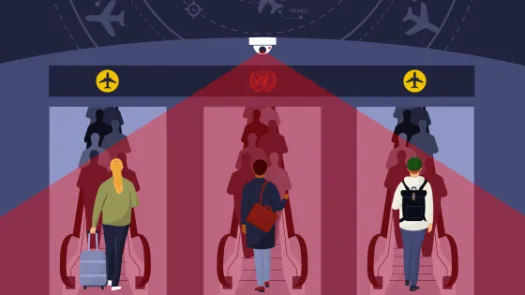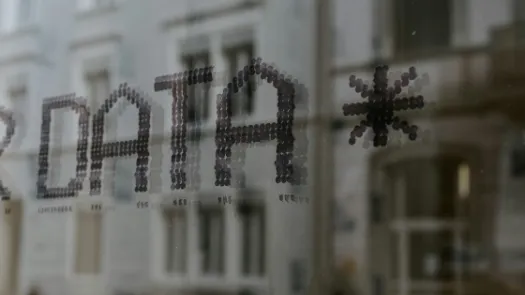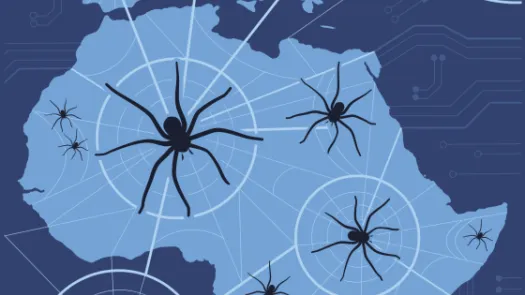New Report Underlines the EU’s Strategy in the War on Migration: Border Externalisation

Photo: The European Union
“Border Externalisation”, the transfer of border controls to foreign countries, has in the last few years become the main instrument through which the European Union seeks to stop migratory flows to Europe. Similar to the strategy being implemented under Trump’s administration, it relies on utilising modern technology, training, and equipping authorities in third countries to export the border far beyond its shores.
It is enabled by the adoption of ad hoc funds, like the controversial “EU-Turkey deal”, an agreement which saw €6 billion given to Turkey in exchange for its commitment to seal its border with Greece and Syria, and which has had dramatic implications for peoples’ human rights. Another is the EU Trust Fund for Africa, a supposedly-emergency fund created in 2015 totalling € 4.3 billion by the end of 2018 – over € 4 billion of which comes from EU development aid and cooperation funds.
Most of these instruments will be part of the new Neighbourhood, Development and International Cooperation Instrument (NDICI), a proposed external instrument under the EU’s next budget for 2021-2027 (known as the Multiannual Financial Framework).
Italy plays a central role in border externalisation. Its efforts are focused on the countries that are most involved in the central Mediterranean route: Libya above all, but also Niger and Egypt. These three countries are the focus of a report by prominent Italian NGO, ARCI, published in June 2019, as part of their “Externalisation Policies Watch” project.
Since 2016, ARCI has been monitoring this phenomenon independently and has regularly published in-depth analyses of the process of externalisation of the European and Italian policies on migration, highlighting the most serious consequences in terms of systematic violations of fundamental rights.
In 2016, Sara Prestianni, the author of the report, explained why border externalisation is so dangerous:
The main thing about the externalisation process is that, within its context, negotiations begin with third countries without first assessing the human rights standards in those places or the way local governments handle immigration issues.”
There is also a perverse logic underlying all these policies, continued Prestianni:
“On one hand, there is massive interference in the African continent, with Europe asking to implement control systems in countries that should allow free circulation within the [Economic Community of West African States] space. On the other hand, negotiations are being conducted with African countries at the expense of hundreds of thousands of people."
In the latest report, ARCI focuses on the relations of Italy and Europe with three countries: Libya, Niger, and Egypt.
Libya
Externalizing border control in Libya means concretely strengthening the role of the Libyan Coast Guard to intervene and intercepting migrants at sea, the same migrants that are running from detention centres where inhumane conditions and repeated abuses have been detailed. In April 2018, the Office of the United Nations High Commissioner for Human Rights in cooperation with the United Nations Support Mission in Libya, detailed such abuses in a report titled “Abuse Behind Bars: Arbitrary and unlawful detention in Libya”. The UN has repeatedly called for the dismantling of all detention centres for refugees in Libya, saying the facilities are not fit to house migrants.
As for funding, there seems to be continuity despite political differences: the Democratic Party-led government in power until mid-2018 approved the two military missions for border control in Niger and Libya and the League-Five Star Movement government (in power until August 2019) then extended them. Similarly, the Africa Fund was refinanced with €80 million for the 2018/19 period.
Italy received two tranches of contributions from the Trust Fund for Africa - the first, of 46 million euros, in July 2017, the second of 45 million euros in 2018 - to which is added the contribution annual 50 million euros that annually finance the presence of our military on the territory.
The ARCI report underlines a lack of clarity and absence of monitoring system for the EUTF (something the European Court of Auditors itself has also expressed reservations on):
Without any official assessment of the first phase of the project having been circulated, on December 13, 2018, the second instalment of funds for Libya was approved (EUTF), to be managed by the Italian Ministry of Interiors in collaboration with ICMPD for a total of 45 million euros, of which 10 million coming from the Development Funds and the other 35 million from Visegrad countries, who are in the front line in building walls. The project continues to focus on the development of the institutional capacities of the Libyan authorities to whom the management of the border is entrusted. Four new naval vessels are included as well as the support to the establishing of a Libyan MRCC.
[…] On March 5, 2019, the Central Direction for Immigration and Police launched a new tender for 30 all-terrain vehicles for «institutional needs associated with the contrasting of the phenomenon of irregular immigration» for €2 million: in this case too, the 46 million to be used come from the first phase of the project. A few days later, on March 12, there was a tender for 10 ʻmini-busesʼ, also destined for Libya, on the website of the Ministry of Interiors.
Niger: the Southern Border of Europe
Dubbed “the new European border”, Niger has been the centre of externalisation policies during the last two years. Niger is a key country for Europe’s strategic goals of migration control and counter-terrorism – with data collection increasingly playing a part.
One element of the border management system, proposed by the International Organisation for Migration, is MIDAS, an immigration database used by the Nigerien government,. It has been already adopted by 23 countries worldwide, according to ARCI:
MIDAS collects, processes, stores and analyzes data on travellers in real time, thanks to an extensive border network. It allows countries to monitor more effectively people entering and exiting the country, and offers a solid statistical base for migration policies.
According to reports by The New Humanitarian, “MIDAS is already linked to PISCES (Personal Identification Secure Comparison and Evaluation System), a biometric registration arm of the US Department of State installed at Niamey international airport and connected to INTERPOL’s alert lists.”
Other elements include the creation of a Mobile Border Post (MBP), a new mobile border checkpoint for Niger authorities (developed with Canadian funds). It is “a cross between a truck and a camper, suited to the desert, equipped with two mobile offices and sophisticated weather-resistant systems.”
Egypt: a Longtime Loyal Ally
Border externalisation finds allies in countries of origin or transit governed by authoritarian regimes. This is the case of Erdogan and the Turkish border or that of Al-Bashir in Sudan, who worked to stop Eritrean refugees by relying on the Rapid Support Forces (RSF), a border unit originating from the Janjaweed militia responsible for crimes against humanity in Darfur.
Egypt also falls into this category: the country is a loyal partner of the EU and of Italy in preventing departures from its coast and actively collaborates with readmission procedures.
Moreover, the capital Cairo will be the center of a border police training program for all of Africa (ITEPA project.) According to the ARCI report:
In September 2017, the Italian government signed a “technical agreement” on migration with the Egyptian one, to be implemented by the Italian State Police, and in particular the Central Directorship for Immigration and Border Police, financed with the Funds for Internal Security - Borders and Visa for a total amount of 1,819,528.75 euros for two years.
[…] The project consists in the opening of a Center for international training on migration for 360 border officers from 22 African countries (Algeria, Burkina Faso, Chad, Ivory Coast, Eritrea, Ethiopia, Gambia, Djibouti, Ghana, Guinea, Kenya, Libya, Mali, Morocco, Niger, Nigeria, Senegal, Somalia, Sudan, South Sudan, Tunisia) at the Egyptian Police Academy in Cairo. [… ] After little more than 6 months, on March 20, 2018, the pilot project was officially launched in Europe.
What’s Next: the Multiannual Financial Framework
The European Commission has proposed to almost triple the funding for migration and border management within the Multiannual Financial Framework, currently under discussion. This would bring it from the € 13 billion of the 2014-2020 period to € 34.9 billion for the 2021-2027 period.
The external action budget, which often includes projects for the externalization of border control, is also to be increased by 22% at € 123 billion.
These new developments bring about a new form of colonialism,” the report argues “based on “supporting” the countries of origin and transit of migrants.
The policy opens a new market for European private businesses and large international groups which, as has long been the case with the war industry, are all too willing to collaborate with dictatorships and fake democracies. The novelty is represented by the fact that this new border control market, unlike that of war, can be used also for internal electoral purposes.
An expansion of such projects within the MFF without the promotion of adequate safeguards, human rights, and governance standards will undermine people’s privacy around the world for decades to come. It is essential therefore that such measures are made accountable, adequately consider people’s rights, and work in the interests of African people – those who are supposed to be the beneficiaries of aid funds.



